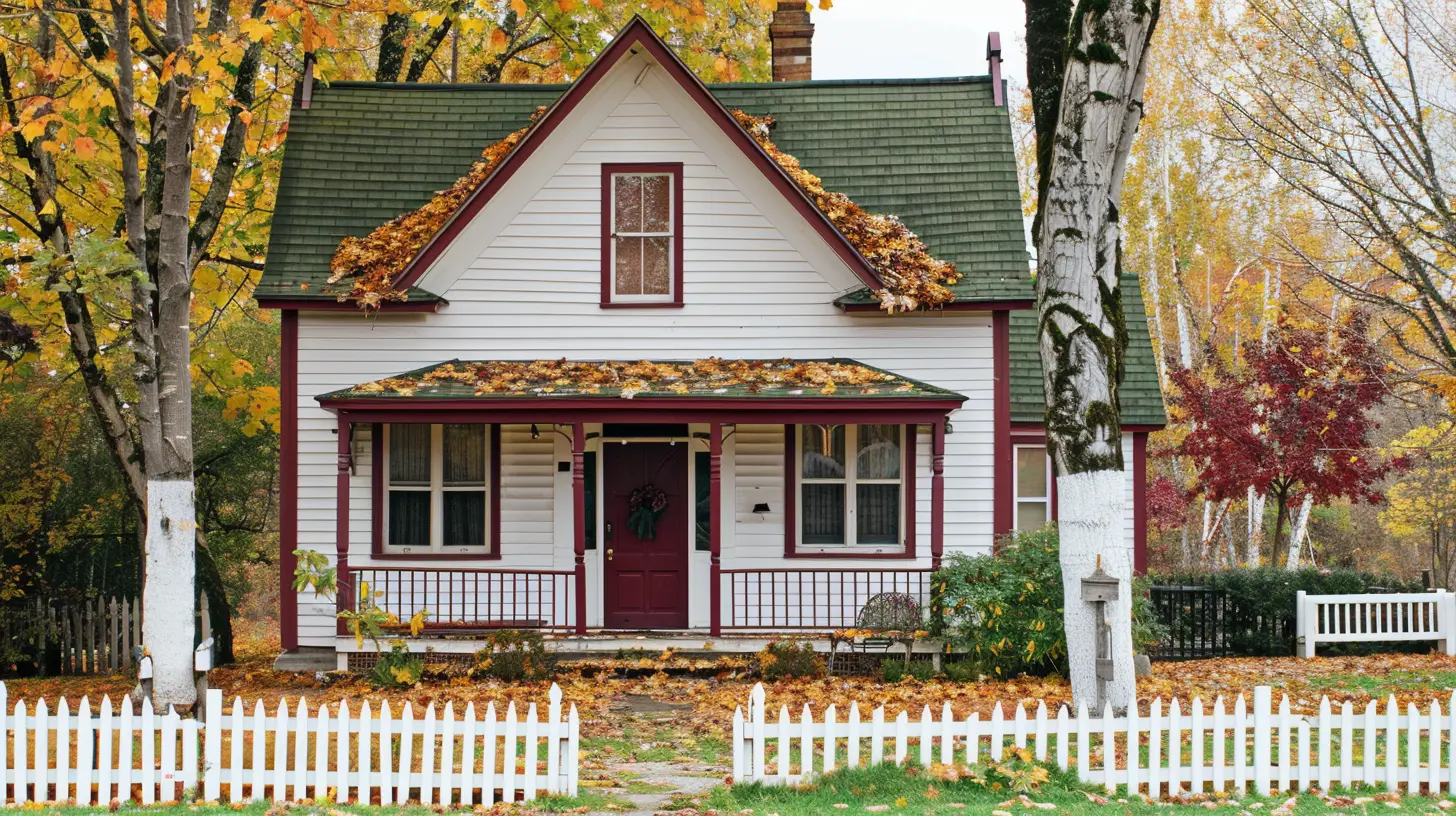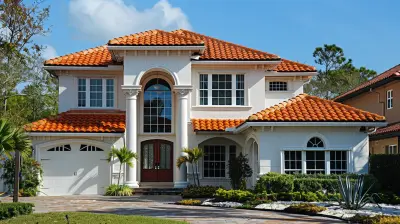How the Market Influences Your Home's Selling Timeline
10 June 2025
Selling a home is often an emotional rollercoaster. One minute, you're excited about the offers flooding in, and the next, you're wondering why buyers are dragging their feet. While location, home condition, and pricing play a big role in how quickly your home sells, the real estate market itself holds a surprising amount of power over your timeline.
Understanding market conditions can help you set realistic expectations, adjust your strategy, and avoid unnecessary stress. So, let’s break it down—how does the market actually impact how long it takes to sell your home? 
1. The Role of Market Conditions in Your Selling Timeline
You’ve probably heard the terms “buyer’s market” and “seller’s market” thrown around when discussing real estate. These aren’t just buzzwords—they’re critical factors that determine how quickly homes sell.Buyer’s Market: Slower Sales & More Competition
A buyer’s market happens when there are more homes for sale than there are buyers looking to purchase. It’s simple supply and demand: more choices for buyers mean sellers have to compete to stand out.- Extended time on the market: Homes sit longer because buyers aren’t in a rush to make decisions.
- Price negotiations: Buyers have the upper hand, often negotiating for lower prices, repairs, and closing costs.
- Higher marketing efforts: More staging, strategic pricing, and incentive offerings may be needed to attract interest.
Seller’s Market: Quicker Sales & Higher Prices
In a seller’s market, demand outweighs supply. Fewer available homes mean buyers must act fast to secure a property.- Multiple offers: Competition drives bidding wars, sometimes leading to sales above asking price.
- Faster transactions: Homes sell quickly, sometimes within days of listing.
- Fewer concessions: Sellers don’t need to offer as many incentives since buyers are willing to pay a premium.
Understanding whether you’re in a buyer’s or seller’s market will help you gauge how long your home might take to sell—and at what price. 
2. Seasonal Market Trends: Timing Is Everything
Did you know that the time of year can significantly impact your home’s selling timeline? Not all months are created equal when it comes to putting your house on the market.Spring & Summer: Peak Selling Seasons
- Families prefer moving during the summer to avoid disruptions in school schedules.- Warmer weather makes home hunting more appealing.
- Homes show better with blooming gardens and bright natural light.
- Higher demand leads to quicker sales, often at better prices.
Fall & Winter: A Slower Pace
- Fewer buyers are looking during the holiday season.- Bad weather makes home shopping less desirable.
- Buyers in the market during this time are usually more serious, which can lead to a smoother transaction but may require patience.
If you’re in a hurry to sell, listing in the warmer months may work to your advantage. However, if you’re not strapped for time, selling in the off-season can sometimes attract highly motivated buyers. 
3. Interest Rates and Their Impact on Buyer Behavior
Mortgage interest rates can heavily influence how many buyers are in the market.Low Interest Rates: Faster Sales
- Lower borrowing costs make home buying more affordable.- More buyers enter the market, increasing demand.
- Higher competition can lead to quick sales and higher offers.
High Interest Rates: Slower Sales
- Monthly mortgage payments rise, discouraging buyers.- Fewer people qualify for loans, shrinking the buyer pool.
- Homes may sit on the market longer as buyers take their time deciding.
If interest rates are rising, pricing your home competitively can make a huge difference in attracting hesitant buyers. 
4. Local Economic Conditions: How Jobs and Growth Affect Sales
The local economy can be a game-changer when selling a home.Thriving Economy:
- Strong job growth brings in new residents.- Increased salaries mean buyers feel more confident about making big purchases.
- Property demand rises, leading to faster sales.
Economic Downturn:
- Unemployment rises, reducing the number of buyers.- People may hesitate to make long-term financial commitments.
- Homes sit on the market longer, and sellers might need to offer price cuts or incentives.
If you notice businesses booming in your area, your home might sell faster than expected. On the flip side, if companies are laying off employees, selling could take longer.
5. Inventory Levels: Supply and Demand in Your Neighborhood
Even within a broader market trend, the number of available homes in your specific area plays a major role in how long your home stays on the market.Low Inventory: Quick Sales & High Prices
- If there aren’t many homes for sale in your neighborhood, buyers have fewer options.- Your home stands out more, leading to faster movement.
- You might receive multiple offers, driving up the price.
High Inventory: Slower Sales & More Competition
- When too many similar homes are listed, buyers have more choices.- You may need to price competitively to attract attention.
- High inventory periods often cause longer listing times.
Researching local inventory trends before listing your home can help you set realistic expectations for the timeline.
6. Pricing Strategy: The Fine Line Between Too High and Too Low
Pricing your home correctly is one of the biggest factors in how fast it sells.Overpricing: A Costly Mistake
- Buyers may overlook your home in favor of a more reasonably priced one.- Your home could sit on the market longer, leading to price reductions.
- Extended time on the market often makes buyers suspicious.
Competitive Pricing: The Fast Track to a Sale
- Attracts more interest and showings.- Can lead to multiple offers, possibly driving the price up.
- Reduces the risk of stagnation on the market.
Working with an experienced real estate agent can help you find the sweet spot between maximizing profit and selling quickly.
7. Marketing and Presentation: How Exposure Affects Timeline
Even in a slow market, the right marketing strategy can make a huge difference.Strong Marketing:
- High-quality photos and virtual tours attract online shoppers.- Social media advertising and MLS listings increase visibility.
- Open houses and staging make a lasting impression.
Weak Marketing:
- Poor listing photos and descriptions fail to generate interest.- Minimal online presence results in fewer inquiries.
- Lack of staging can make it hard for buyers to envision the space.
The more eyes on your home, the better your chances of selling quickly—regardless of market conditions.
Final Thoughts: Market Matters, But Strategy is Key
At the end of the day, the market plays a significant role in your home’s selling timeline, but you still have control over many factors. Pricing wisely, marketing effectively, and timing your sale strategically can all help you achieve the best outcome—even in a slower market.If you're thinking about selling, take some time to understand the current market trends. And remember, a great real estate agent can guide you through the process, making sure you make smart decisions every step of the way.
So, is now the right time to sell? Well, that depends on the market—and your game plan!
all images in this post were generated using AI tools
Category:
Sellers GuideAuthor:

Travis Lozano
Discussion
rate this article
3 comments
Graham Franklin
Selling your home is like dating—sometimes timing is everything! 🏡❤️
June 17, 2025 at 4:56 AM

Travis Lozano
Absolutely! Just like in dating, finding the right moment in the market can make all the difference in successfully selling your home. Timing is key! 🏡✨
Elsinore Gomez
Stay patient, your perfect buyer is out there!
June 11, 2025 at 2:33 AM

Travis Lozano
Thank you! Patience truly pays off in the right market.
Madison Thomas
Understanding market dynamics is key; timing your sale strategically can significantly impact your home's value and selling experience. Stay informed!
June 10, 2025 at 3:53 AM

Travis Lozano
Thank you for your insight! Timing and market awareness are indeed crucial for maximizing home value and ensuring a smooth selling process.



